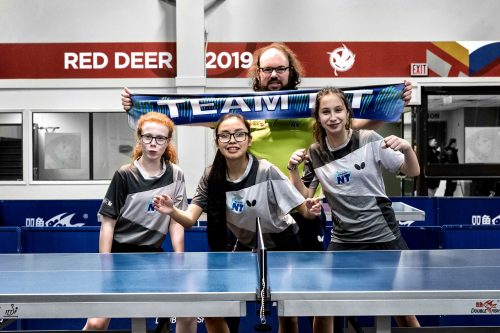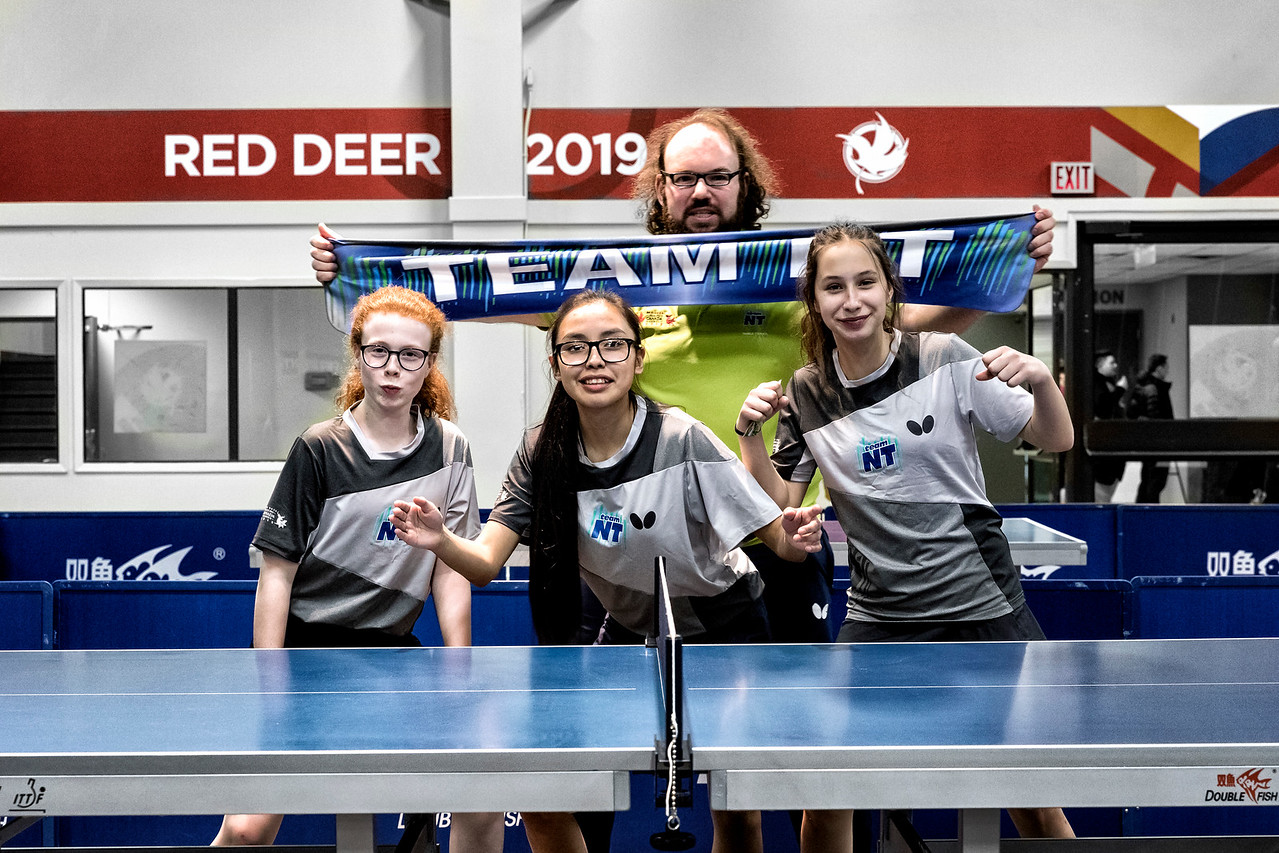Bringing table tennis to the Northwest Territories
 It’s been six years since Thorsten Gohl introduced table tennis to the Northwest Territories, overcoming a number of geographical and societal challenges that have historically made it difficult to create and sustain sport organizations. In a short time he’s seen the number of participants sky-rocket as students throw themselves into the pastime once known as ping pong.
It’s been six years since Thorsten Gohl introduced table tennis to the Northwest Territories, overcoming a number of geographical and societal challenges that have historically made it difficult to create and sustain sport organizations. In a short time he’s seen the number of participants sky-rocket as students throw themselves into the pastime once known as ping pong.
“It’s not easy to bring programs into these communities, as it takes a lot of financial resources just to get here. And we’re facing challenges that are different than Yukon or Nunavut. You have to fly in,” Gohl said, following a successful presentation at the Sport for Life Canadian Summit.
“Table tennis should be the sport of the North because you can do it wherever, it’s a fun activity, and you can play it old, young, big or small. You don’t need much equipment, basically just a ping pong ball, and then you can even make your own table.”
Gohl is based in Fort Providence, next to the Mackenzie River, a community of approximately 700 people. Since arriving in NWT following a lifetime of travel, he worked to get a Table Tennis team recognized by the Canada Games and became a member of Table Tennis of Canada, securing funding that made it possible to play with over 2,000 children in the North through community outreach.
“Right now I’m the only fully certified coach, and we have about 20 trained coaches for our clubs in Fort Smith, Hay River, Fort Providence, Fort Simpson. We’re working on a club in Yellownknife too.”
But it’s not enough to start a club. He also wants to see his table tennis athletes engaged in meaningful competition. There’s now a territory-wide competition every year, on top of the Arctic Winter Games being held every second year. The reason he believes it’s been able to take off while other sporting endeavours have fizzled out is because there aren’t as many hurdles to get involved.
“It’s a real work-out, depending on your level. If you play against me, or someone who is as good as I am, then you really need to move.”
And many of his athletes participate in other sports, such as hockey or basketball, so he’s pleased these up-and-comers will now have a multisport background.
“The idea with multisport is we’re making better people, people who are healthy and active and having fun. The idea is I’m not taking your athletes, I’m trying to support your athletes and make them better, more well-rounded people.”
Sport for Life CEO Richard Way believes the work Gohl is doing in NWT is an exemplary example of how to think outside the box when developing physical literacy in remote communities. Featuring his work at the 2020 Sport for Life Canadian Summit in Gatineau and the 2019 International Physical Literacy Conference in Umea, Sweden were opportunities to share that work with delegates from all around the world.
“Thorsten had the vision necessary to make this endeavour work, and now other sport organizations working in challenging locations can use his example as a blueprint for success. It’s not just about playing table tennis. This is about contributing to a community’s overall health, bringing people together and giving them something to accomplish,” he said.
“This program demonstrates what’s possible in NWT if you have a dream, now we can’t wait to see how things continue to develop as he reaches more communities and involves more players.”

